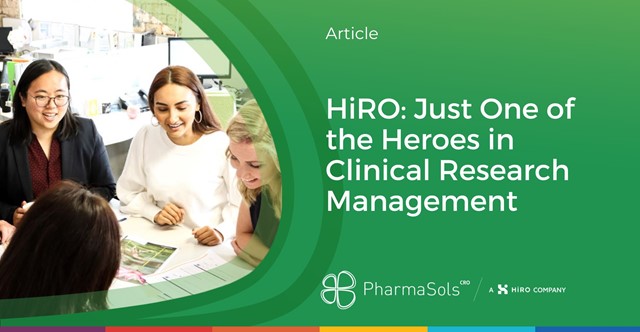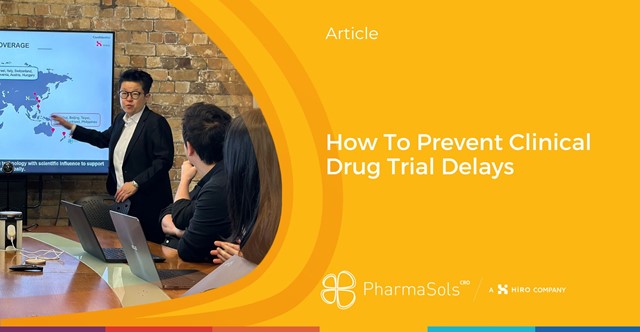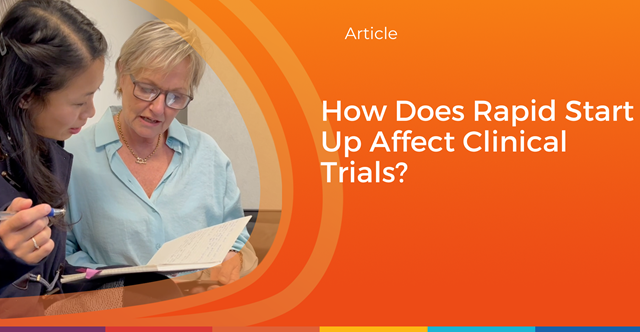08 Sep
How To Avoid Costly Errors in Ethics and Regulatory Submissions

Ethics and Regulatory applications are a necessary complexity that can determine trial start-up timeframes or, in some cases, throw trial startup timelines immediately off-target if done incorrectly.
Selecting who should be responsible for completing this application can also have a significant impact on the continuity of the trial.
Delays and cost
While 85% of clinical trials facing delays may typically be due to patient recruitment and retention, there is another culprit: human error [1].
A small error in ethics and regulatory applications can cause delays which have a ripple effect on the rest of the study. As Ethics Committees meet and review submissions routinely, an avoidable error or omission in an ethics application can have significant delays in re-applications timelines.
These early start-up delays put pressure on all other aspects of the trial, causing a rushed site selection process, tighter patient recruitment timeframes, or clinical trial timeline extensions, and prolonged commericalisation of a new medince or device. These delays can be avoided by involving an experienced team, who is familiar with the ethics and regulatory processes in the region of interest, to assist the application process.
It is a setback that has the potential to cause costly consequences. PhRMA found that the average cost of a successful drug trial to be around $2.6 billion. Included in that cost are delays, which can be thousands or even millions of dollars. The cost per day can fall anywhere between $600,000 to $8 million[2].
Suddenly, an easily avoidable error could end up costing millions.
Global sponsors doing E&R
There then becomes the question of who should be managing the local ethics and regulatory applications.
Some sponsors choose to complete their own ethics and regulatory applications in-house. Many sponsors have staff that understands their local ethics and regulatory applications and assumes that this experience will cross over into another region's submissions. It is this approach where we see the most errors made.
Every region's' ethics and regulatory processes are unique and it requires a local team to understand the intricacies of these applications. So easily, what was initially perceived as a cost-saving approach can become a costly mistake.
Getting sites to do E&R
Some sites offer to complete ethics and regularoty submissions for studies where they are the local sponsor. As not all sites have fully trained ethics and regulatory specialists this can still pose some issues. Many sites use Study Co-Ordinators to complete ethics and regulatory applications. This can mean that they are more narrowly experienced and applications can be rushed as busy study co-ordinators juggle multiple studies and priorities.
The benefit of a local CRO
Partnering with a CRO to do the ethics and regulatory application is the most reliable option.
CROs have the wide experience that allows them to quickly identify errors or identify challenges with a study that could delay a trial when issuing an Ethics and Regulatory application. Moreover, should re-applications be required, they are able to draw on their broad experience to implement innovative strategies that assist in streamlining and problem-solving any issues.
Local CROs have intricate knowledge of their country's ethics and regulatory requirements. They have strong relationships with both ethics and regulatory body representatives – assisting better communication. Local CROs can usually be notified about the availability for the ethics meetings, which can enable them to align the application hand-in accordingly to prevent a 2-4 week delay in the entire process.
In addition to this, these local CROs will also have more established and trusted relationships with sites and local experts to gain insight regarding issues that may arise. These relationships within the industry assist with topics such as the specific standard of care available in the region for the indication of interest to align the study design accordingly, and the specific certification requirements (e.g., GMP certification) for the sponsors to run the clinical trial in the region.
Using a local CRO helps make this process run smoothly. While regions like Australia and New Zealand present with some of the fastest Ethics and Regulatory approval environments globally, both come with unique regional and cultural requirements that play vital roles in the application process. These requirements require local knowledge.
PharmaSols
PharmaSols is uniquely positioned in Australia and New Zealand, one of the world’s most trusted and rapidily growing clincial trial regions. With over 20 years of experience in this region and a team of dedicated start up speciliasts, we ensure the success of any trial’s Ethics and Regulatory application. On top of that, we can successfully achieve rapid start-up in 35 days (even less in cases like this).
In addition to this, PharmaSols takes a creative problem-solving approach, has a trusted network of experts, and maintains a people-driven attitude, so you can be confident that your trial will remain on track and meet its targets.
[1] Facts about clinical trials. (Online) Available at: http://www.arena-international.com/clinicaltrials/facts-about-clinical-trials/1063.article
[2] Accelerating Study Start-Up: The Key to Avoiding Trial Delays (Online) Available at: https://acrpnet.org/2017/02/01/accelerating-study-start-up-the-key-to-avoiding-trial-delays/
Other News
March 2024 (1)
February 2024 (1)
December 2023 (1)
November 2023 (1)
October 2023 (1)
September 2023 (2)
August 2023 (1)
July 2023 (1)
June 2023 (2)
May 2023 (3)
April 2023 (1)
March 2023 (2)
The Go-to region for clinical trials (1)
HiRO – our global advantage, tailored solutions and key partnerships (1) (1)
HiRO – an emerging full-service global CRO (1)
HiRO – Top CRO in APAC 2022 (1) (1)
November 2022 (1)
October 2022 (1)
September 2022 (1)
August 2022 (1)
July 2022 (1)
June 2022 (1)
May 2022 (1)
April 2022 (1)
March 2022 (1)
January 2022 (1)
December 2021 (1)
November 2021 (1)
October 2021 (2)
September 2021 (2)
August 2021 (3)
July 2021 (3)
June 2021 (2)
May 2021 (1)
April 2021 (2)
March 2021 (1)
February 2021 (1)
December 2020 (5)
November 2020 (1)
October 2020 (5)
September 2020 (1)
August 2020 (2)
May 2020 (5)
January 2024 (0)



